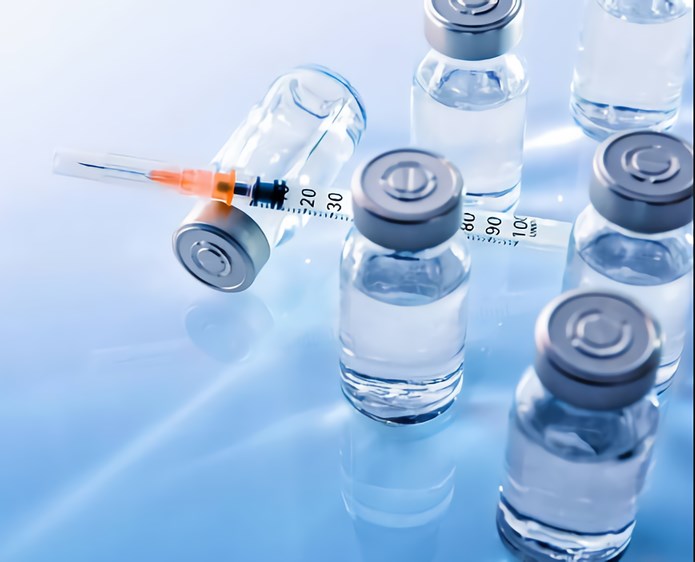Rheumatoid Arthritis Vaccine Design Service
Creative Biolabs provides global solutions for worldwide customers in the field of autoimmune disease vaccine development. We have successfully accomplished many projects in autoimmune disease vaccine development services for rheumatoid arthritis. We guarantee the finest results for our customers all over the world.
Introduction of Rheumatoid arthritis

Rheumatoid arthritis (RA) is the most common autoimmune chronic inflammatory rheumatism which affects approximately 0.5% of the population. The RA has a significant negative impact on daily activities (including work and household tasks) and health-related quality of life, and it increases mortality. The disease is characterized by synovial membrane hyperplasia and systemic inflammation, and autoantibodies (particularly to rheumatoid factor and citrullinated peptide), which induce pain and stiffness. The destruction of joints results in a net loss of cartilage and bone in patients with RA. Since most joint injuries are largely irreversible, persistent damage will inevitably lead to greater disability, thereby reducing the optimal quality of life. In addition, RA may promote many other extra-articular effects, including coronary artery disease and pulmonary fibrosis.
The Risk Factors for Rheumatoid arthritis
Rheumatoid arthritis is a complex genetic disease, which means that several genes, environmental factors, and stochastic (chance) factors act together to cause pathological events. The results of the twin study have estimated that the relative contribution of genetic factors to be about 50% for the entire syndrome of rheumatoid arthritis, leaving the remaining part to environment and chance. As to RA, smoking, hormones and bacterial infections are considered as possible environmental risk factors. Another related issue is the timing of exposure to potential environmental factors. Some studies have shown that accumulation of risk factors can begin even before birth, including the possibility that birthweight and the mother’s MHC gene composition might affect future risk for rheumatoid arthritis in offspring.

Fig 2 The potential autoantigens and risk factors (both genetic and environmental) of rheumatoid arthritis. CII: collagen type II; GPI: glucose-6-phosphate isomerase. (Zhang, 2018)
Vaccines for Rheumatoid arthritis
- DNA based vaccines
DNA-based vaccines are generally less immunogenic than other conventional vaccine types and are therefore well suited for patients with autoimmune diseases. Since CII is a key autoantigen in RA, DNA vaccines encoding CII is a possibility for designing a vaccine against arthritis development. The protective mechanism of this DNA vaccine is attributed to increased CD4+ CD25+ T regulatory cell (Tregs), which induce a shift from Th1 to Th2 cells. DNA vaccines play an important role in regulating the immune system and may have clinical value in the treatment of autoimmune diseases.
- Peptide-based vaccines
Epitope-based peptide vaccines can mimic naturally processed epitopes to act as tolerogens in autoimmune diseases. Altered peptide ligand (APL) are analogs of immunogenic epitopes that are modified by introducing one to few amino acid substitutions while retaining the MHC binding property. APL induces antigen-specific Th2 T cell responses that may inhibit disease activity. Therefore, many similar peptides have been designed and studied for their inhibitory efficacy. The APL of CII256-271 (G262A) shows antagonistic activity in T cells from RA patients, and intraperitoneal injection of the APL significantly suppressive collagen-induced arthritis. Therefore, G262A may be used as a therapeutic vaccine against RA development.
- MHC II-peptide complex-based vaccines
Binding of peptides to MHC molecules can induce differentiation of antigen-specific Tregs, which secrete the anti-inflammatory cytokines leading to a decrease in arthritis. In murine RA patients, autoreactive T cells recognize the site CII260-273 peptide on the immunodominant. The lysine present at position 264 (K264) can be hydroxylated and further glycosylated with mono or disaccharides. T cell recognition of CII-glycosylated peptides plays an important role in the development of arthritis. Administration of glycosylated CII259-273/Aq complex prevent the development of arthritis and ameliorate the recurrence of chronic diseases.
- T cell vaccines
The idea of T cell vaccination (TCV) for the treatment of RA is to produce an immune response against the pathogenic autoreactive T cells by isolating autoantigen-specific T cell clones from recipients and after attenuation / inactivation, re-injecting the isolated cells as a vaccine to stimulate endogenous regulatory circuits. TCV is able to induce CD4+ CD25+ Treg and CD8+ anti-idiotype T cell responses, which downregulate the systemic inflammatory process. Therefore, TCV is a very important way to treat RA. A major advantage of TCV for RA treatment is that it can be applied even if the autoantigen is still unknown.
Our Services for Rheumatoid arthritis Vaccine
With a variety of mature and comprehensive platforms and technologies for the evaluation and improvement of vaccine development, our platform is dedicated to providing the best solutions and protocols customized to vaccines development for RA. Our service has the following characteristics:
- Help develop vaccines with the appropriate immune response
- Provide specialized vaccine development designs and solutions based on customer needs
- Evaluation and data analysis of candidate vaccine immune effects
Creative Biolabs is a leader in the field of vaccine development and has focused on vaccine development services for years. We have experienced experts and advanced platforms that are able to provide excellent vaccine services for autoimmune disease. If you are interested in our services, please contact us for more details.
Reference
- Zhang N and Nandakumar K S. Recent advances in the development of vaccines for chronic inflammatory autoimmune diseases. Vaccine. 2018, 36(23): 3208-3220.
All of our products can only be used for research purposes. These vaccine ingredients CANNOT be used directly on humans or animals.


